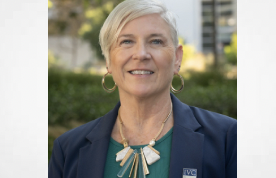Author: June Mclaughlin
Higher Education is grappling with generative Artificial Intelligence, and graduates will need some understanding of it as a tool in the workplace. Current institutional capacity to achieve that preparation varies widely among colleges. Students are using AI but how ethically or safely and with what faculty support?
A 2024 survey by the Center for Digital Thriving along with other nonprofits, polled high school and college age students regarding how they use AI. Most use it to brainstorm ideas or for information, and sometimes to help write essays for them. Yale University’s AI Taskforce released a 2024 report highlighting how AI is utilized overall, and then by school. Yale, unsurprisingly, wants to bring its strength to the worldwide development of AI. The law school, for instance, claims to teach students to teach AI the law.
Professors overall appear slow to adopt AI in the classroom or use it for course design, preferring the use of AI detection tools on student work – some of which are deeply flawed. For my Cannabis Law course, I use AI to help me design the course around fundamental legal concepts relevant to the cannabis industry. I prompt it to generate fact scenarios around contract breach, torts such as disparagement, and commercial speech which students analyze. Also, I created a few assignments where students create a prompt to ask AI and deeply human questions around a legal issue, like a truly personal conflict at work that might implicate HR rules, and they evaluate the AI response recommending paths of resolution.
During my lectures, I repeatedly experience students asking Chat GPT about the veracity of my statements regarding civil procedure rules just as an example. The goal for faculty should be to learn along with students but also teach them to double-check AI by comparing the AI response to the rules themselves. AI has the possibility to improve the cannabis industry’s efficiencies in cultivation and logistics. In California, at least, with potential tax increases in 2025, the possibility of AI is not a top priority. Nevertheless, students take Cannabis Law classes and sadly learn much from the regulatory dysfunction.




















